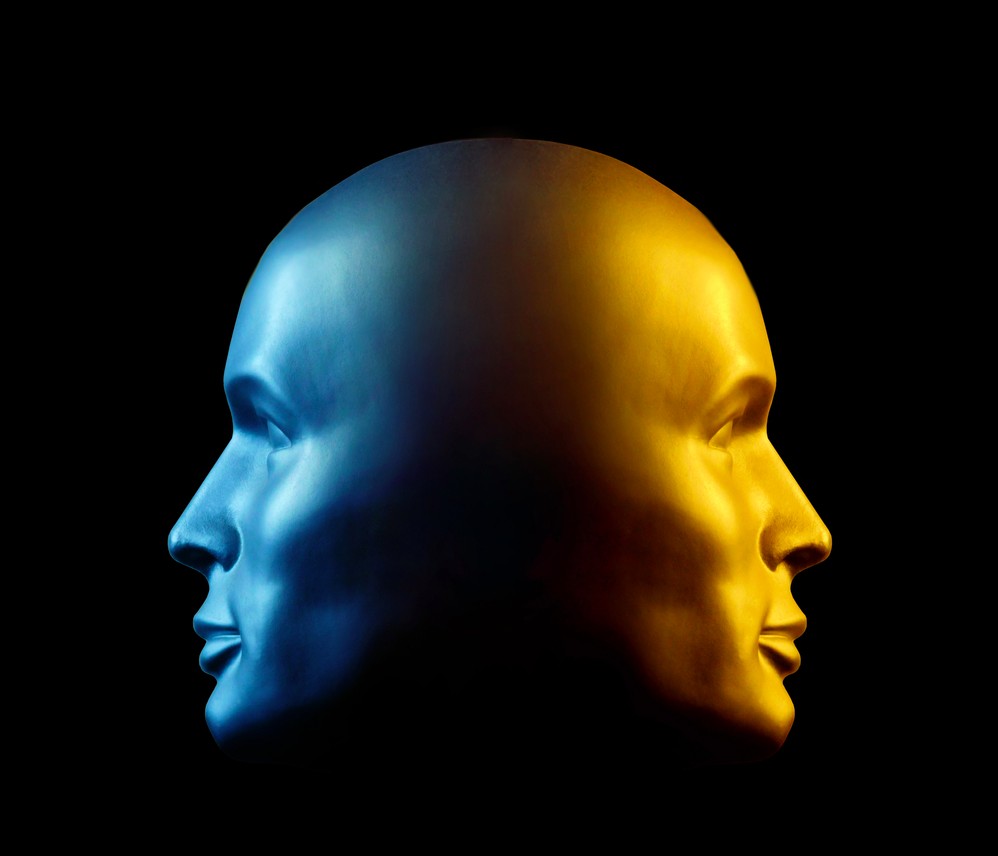* As you read this, please do not diagnose yourself. Keep in mind, I am not diagnosing myself or others – I am simply reflecting on parts of my own personal experiences in relation to my pursuit to understand the mind and certain behaviors. *
As I recently reflected on names, I wanted to explore why, present-day, I felt not using my nickname frequently was a part of my healing process; and, reflect on observations I’ve made in others. Particularly, I want to open a discussion about a particular aspect of dissociative identity disorders, mainly depersonalization and dissociative trance.
According to the DSM-V, the manual for mental disorders, Dissociative Identity Disorder is characterized by some symptoms such as: disruption of identity characterized by two or more distinct personality states that involves marked discontinuity in sense of self and sense of agency (some cultures may see this as possession), recurrent gaps in the recall of everyday events, important personal information and/or traumatic events that are inconsistent with “ordinary” forgetting. Depersonalization/derealization includes, but is not limited to: experiences of unreality, detachment or unfamiliarity with one’s whole/aspect of Self in respect to one’s thoughts, feelings, sensations, body or actions (e.g. perceptual alterations, unreal or absent self, emotional and/or physical numbing), and detachment to surroundings. Other specified dissociative disorder designations include acute dissociative reactions to stressful events, which can be characterized by constriction of consciousness, depersonalization, derealization, perceptual disturbances and/or alterations in sensory-motor functioning that typically lasts less than a month, sometimes a few hours or days. Another one is dissociative trance, which is characterized by an acute narrowing or complete loss of awareness of immediate surroundings that manifests as profound unresponsiveness or insensitivity to environmental stimuli. There are many other factors and things to keep in mind when looking at disorders, so I specifically picked out pieces of interest.
Initially, as a coping strategy, but not meeting sufficient diagnostic criteria, dissociation can be short-term slips into this state of being in order to escape fully experiencing trauma that feels unbearable. When we are not in a stable and secure environment and go through abuse, or any threat of physical, sexual or emotional violence, the autonomic nervous system kicks into fight or flight. A trauma-inducing environment exacerbates these responses, and one of the effects can potentially be dissociation – a protective reaction/coping mechanism that allows a person to feel as though they are detached from the experience and observing or distancing themselves mentally, rather than actively participating in the trauma.
In my TEDx talk, I briefly mentioned some of the experiences I’ve endured, and I remember at a certain point in time, I had the belief that, “I am Skukura, but everything happens to Suki.” I clearly identified the character traits of each identity. Skukura was who I am, spiritually – the one that is confident, lives by her values, was successful, nurturing and had a divine purpose… all the positive qualities that I encompass. Now, Suki, on the other hand, she was the one that appeared to not give a f*ck. She was the one in unsafe situations; the one people used and abused, and wasn’t good enough, carried shame and burdens. Still, Suki felt that she could handle the pain and torment and knew how to tolerate it through drinking and other addictions. She was tossed around and thrown away by the different men coming in and out of her bed every day. She felt that she could take, or even deserved, the myriad abuses and sexual objectification. Suki succumbed to the idea that that’s what her life was, despite the true desires embodied in Skukura. Suki was “fun,” but Skukura handled her business.

To be honest, having and keeping that deep knowing of who I truly was beyond the trauma was the only thing I felt kept me alive at times; it helped keep a little flicker of hope inside of me. My experiences weren’t one-off traumas – it was continuous and consistent. Suki was lost, but Skukura knew how to find her way out. I couldn’t have one without the other because there wasn’t any internal balance; so, in my mind, I had to create it – and it did so with the façades. I almost constructed a third identity when I was no longer resonating as much with Suki, but I wasn’t fully Skukura; yet, by that time, I realized that wasn’t the way to go.
I had some support, but I didn’t have the support I needed, and having distinct identities allowed me to unconsciously slip away as a method to support my idea of well-being. Innumerable times, I remember having sexual encounters and being completely disconnected from the sensations and thoughts – I was just there and I knew things were happening, but in no-way was I present. I would, involuntarily, mentally check out from the situation until it was over; awakening into a stupor.
A monumental part of my healing journey was no longer running and hiding aspects of my Self, but learning to incorporate all that was me into one singular being – accepting the “good” and the “bad.” Then, determining what choices, in every situation, Skukura was going to make moving forward. Suki will always be a part of me, but I don’t necessarily identify with the concept of who she became to me; and, I’m not skittish or offended if people who were ever introduced to me as Suki use that name (as long as you know that’s not my real name), but I’m happy with just being Skukura – she is All. I am All; and, I’ve got this!
Knowing myself, I can recognize others. I’ve talked with certain people who have nicknames, or strongly preferred names that are absent of their given name. As I took the time to get to know them, it always came out… “I was called so-and-so when I was getting into trouble; so-and-so ‘likes’ to fight. Everybody knew so-and-so as (insert unbecoming personality traits),”
Having awareness of their behaviors that were antagonistic to what I was hearing, I’d always be curious, “Sure, but who are you?” I’d inquire, “When did you start going by so-and-so, and when do you adapt to that ‘other person’?”
“Well around this age.”
“What was going on then?”
“(insert trauma).”
I even had a supervisor one time that would always “jokingly” threaten “Don’t make so-and-so come out!” But why does someone else have to come out for you to address this situation? Who is this other person that isn’t the individual standing in front of me? What are the characteristics and skills of this fictitious individual that isn’t you? I look at these statements as manifestations of that person’s unresolved trauma or an inability; it’s internal conflict, a lack of clarity of their authenticity.

Now, I’m not saying no one should have nicknames nor that having alter-egos is necessarily a bad thing; however, what I am trying to point out is that sometimes these multiple identities within a single person can point to coping strategies that are being used because of a disconnect from their true Self and their “real” environment. What is the impact of holding on to these personas, especially when they no longer serve you, IF you are trying to ascend to a higher plane of conscious awareness?
In pop-culture, you see this often with entertainers and stage names – the creation of a different persona meant to entertain or sell a (false) sense of ways of being or lifestyle. When I was thinking about taking the next steps in my writing career, I strongly considered using a penname but my reason was to protect my Self and “be able to say what I wanted,” but as I thought about it, I have the power to say what I want; I don’t need a different identity that allows me to speak my/Skukura’s truth.
So, as we reflect on identity, healing and growth, once again, names and being mindful of how those around us use monikers can potentially give great insight into their mind’s state. If we are forgiving and accepting of our full Self and its spectrum of experiences, as well as being in healthy, safe environments or having the skills to navigate them, I don’t believe there would be a need to transform our sense of Self into a separate, distinguished creation.
Union with our full, authentic Self requires us to integrate every part of our narrative into a single story – they may be different volumes, but they’re not necessarily completely different truths.
I am ALL that I am.


